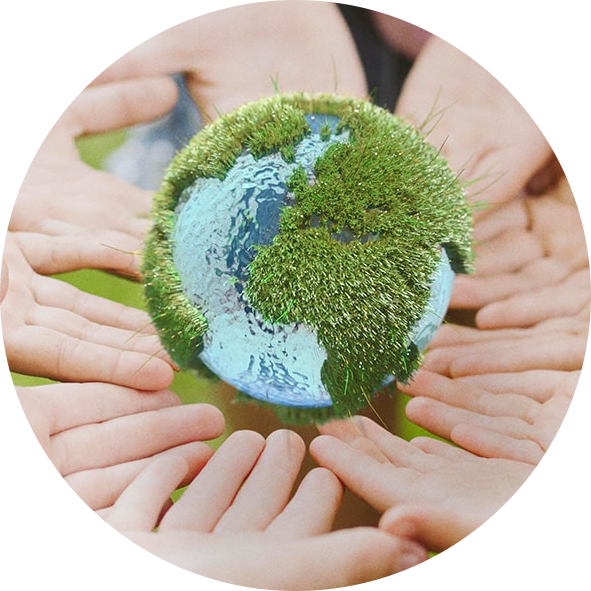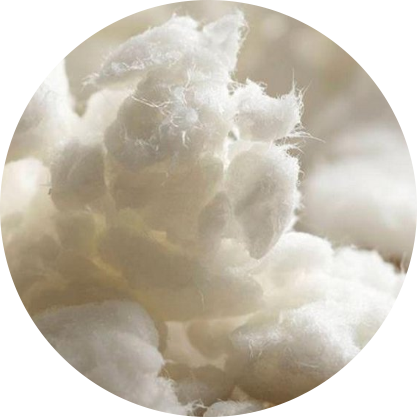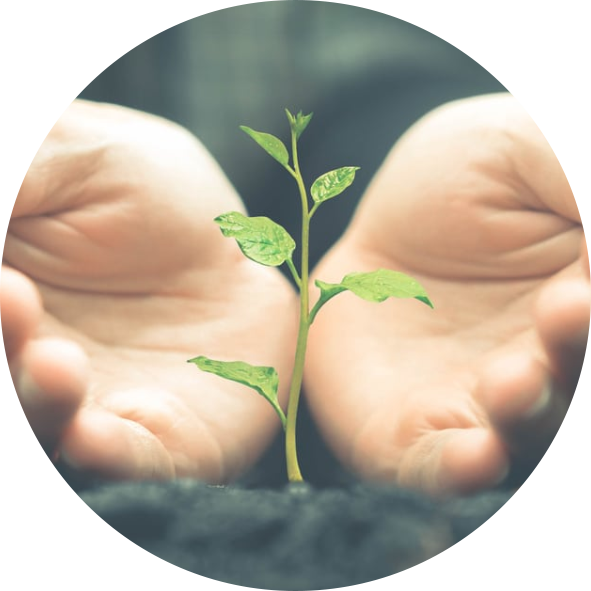Our commitment to sustainable development begins with raising our standards for materials, packaging, procurement, and social responsibility. This long-term sustainable development strategy is built on a sustainable foundation, including our operations, our products, and the communities around our facilities.


Wood pulp cotton is a type of cellulose fiber that originates from wood fibers such as trees and wood waste. From the perspective of renewable materials, wood pulp cotton is a relatively environmentally friendly choice, and Oukai is promoting the production and application of wood pulp cotton

-
01 Renewable resources:
The raw materials for wood pulp cotton come from trees and wood waste, which can be continuously supplied through replanting and recycling. Compared to non renewable fiber materials such as chemical fibers and synthetic fibers, using wood pulp cotton helps reduce dependence on non renewable resources.
-
02 Ecological friendliness:
The production process of wood pulp cotton uses relatively less chemical substances and energy, and the generated wastewater and exhaust gas can be treated and recycled to reduce environmental pollution. Compared to synthetic fiber materials, wood pulp cotton has lower environmental impact in the production process.
-
03 Degradability:
Wood pulp cotton is a biodegradable material that can be decomposed and degraded by microorganisms under natural conditions, reducing residue and pollution to the environment. Compared to synthetic fiber materials, wood pulp cotton is more likely to return to the natural environment after the end of its lifecycle.

Corporate social responsibility refers to the obligation to not only create profits and assume legal responsibility for the interests of shareholders and employees, but also to take responsibility for consumers, communities, and the environment. Undertaking social responsibility is not solely about achieving greater profits. This is a typical traditional corporate vision that requires companies to go beyond it and pay more attention to the value of humanity in production, as well as its contribution to the environment, consumers, and society.
-
01Oukai actively adopts energy-saving and emission reduction measures to improve energy efficiency in the production process
Using clean energy and reducing greenhouse gas emissions. At the same time, enterprises can implement effective environmental management measures, such as compliant waste disposal, to ensure that the impact of production processes on the environment is minimized.
-
02Improve process, update and transform equipment
By improving processes and upgrading equipment, energy and data consumption can be reduced, and the impact on the environment can be reduced.
-
03Recyclable system/waste recycling and reuse
An important measure to implement a comprehensive conservation strategy is to improve resource utilization efficiency, enhance strategic resource guarantee capabilities, promote high-level protection of the ecological environment, and accelerate the green transformation of development modes.
-
04Pollutant discharge meets the standards
According to the requirements of ISO14001 environmental management system, the company has established an environmental standard system, which effectively controls the pollution sources in the production process and achieves the standard discharge of pollutants.

 简体中文
简体中文 English
English 日本語
日本語 русский
русский Español
Español عربى
عربى
